Author(s) |
Title and Abstract |
Chen, J.,
& Cowie, B.
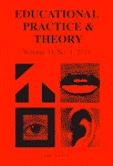
|
Chinese preservice teachers’ beliefs about assessment. Educational Practice and Theory, 38(2), 77-93
Abstract:
This study investigated the responses of 531 preservice teachers to a “Beliefs About Assessment” questionnaire in China. The questionnaire focused on understanding the purposes, practices and principles of assessment for and of learning. Using factor analysis, an inter-correlated two-order model fitted well to the responses. This model comprised four factors: Assessment to Trace Development and Inform Action, Assessment for Various Accountability Purposes, Teacher Assessment Knowledge and Negative Aspects of Assessment. The preservice teachers demonstrated a broad conception of the usefulness, relevance and problematic nature of assessment for multiple purposes. As might be expected, preservice teachers endorsed the Negative Aspects of Assessment factor least (albeit still at the level of ‘agree’) and this assessment factor was very much inversely independent of the other factors. Striking differences and intriguing similarities between inservice and preservice teachers in the Chinese context and preservice teachers in China and New Zealand are discussed.
|
Alviar-Martin, T.,
& Baildon, M. C.

|
Issues-centred global citizenship education in Asia: Curricular challenges and possibilities in non-centric and neoliberal times. Curriculum Perspectives, 36(2), 65-75
Abstract:
This paper is organised into four sections. Discuss theories of curriculum as discursive practice (Abowitz & Harnish, 2006) and highlight implications of global discourses on classroom-based study of global issues (Gaudelli, 2009). Sketch the context of GCE in Asia by drawing on comparative studies and scholarly analysis of citizenship education in the region. Survey case studies from selected Asian societies to illustrate that — rather than addressing public issues and promoting social justice — nationalist and neoliberal discourses work together to forward unsustainable growth that further polarises societies based on social class, power and privilege (Mitchell, 2003). Recommend future directions in GCE research and practice.
|
Cheng, Y. C.,
& Greany, T.
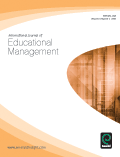
|
International study of school autonomy and learning: An introduction. International Journal of Educational Management, 30(7), 1166-1170. DOI: 10.1108/IJEM-03-2016-0050
Abstract:
This special issue composed of seven articles reports on the initial findings from the first phase of the “International Study of School Autonomy and Learning (ISSAL)” research project. This project involves seven education systems: Australia, Canada, England, Finland, Hong Kong, Israel and Singapore.
|
Cheng, A. Y. N.,
& Szeto, E.
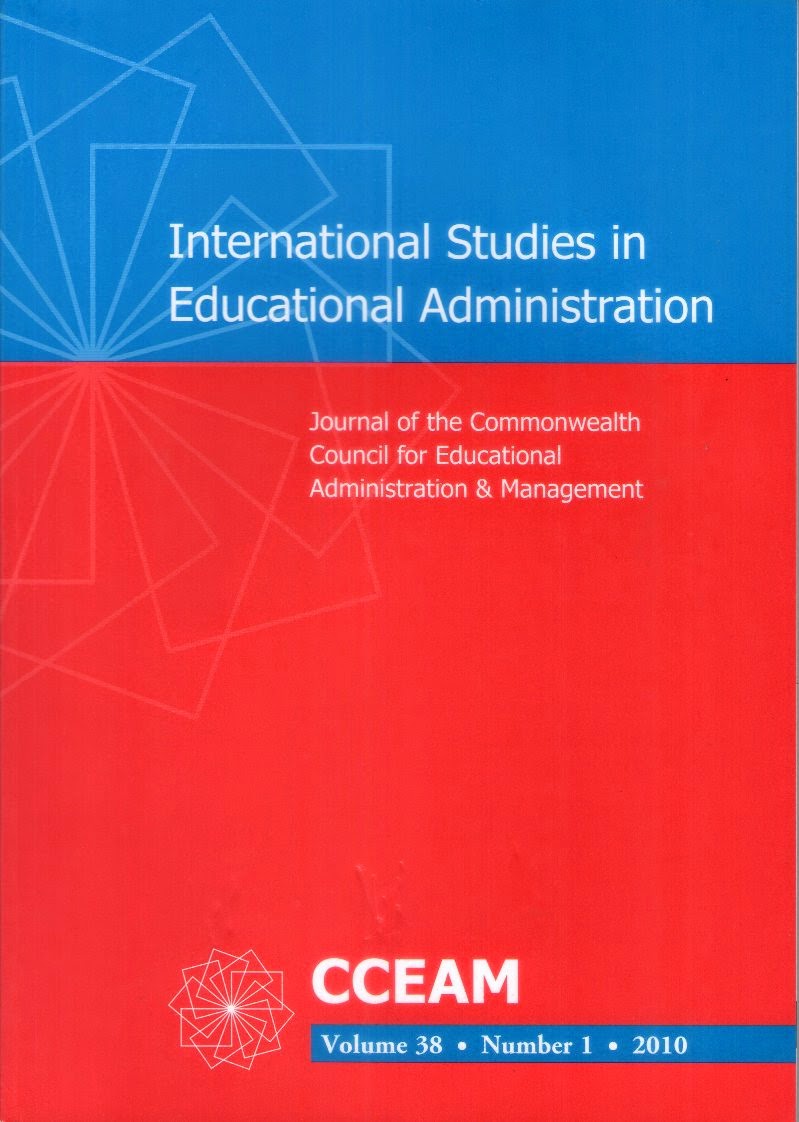
|
Changing principal’s work in education reform. International Studies of Educational Administration, 44(3), 21-35.
Abstract:
This study examines the changing nature of principals’ work in the context of the global movement of education reform. This changing nature is not uncommon in different education systems across various societies. We adopted a case study approach to unpack two Hong Kong principals’ struggles with the challenges posed by the changes in education policy and increasing student diversity in a Chinese context. Three research questions are addressed: (1) What challenges did the principals face at the time of the education reforms? (2) What was the major change in the principals’ work in addressing those challenges? (3) How did the principals view their changing work under the education reform? Multiple qualitative data were collected, including semi-structured interviews and documentary evidence such as school reports and school development plans. The results show that the principals had been changing and expanding the scope of their work over the past decade. Despite this change, they could identify new opportunities emerging from the challenges that were sustaining the school development. The implications of the principals’ changing work for school improvement and future research are discussed.
|
Qian H. Y.
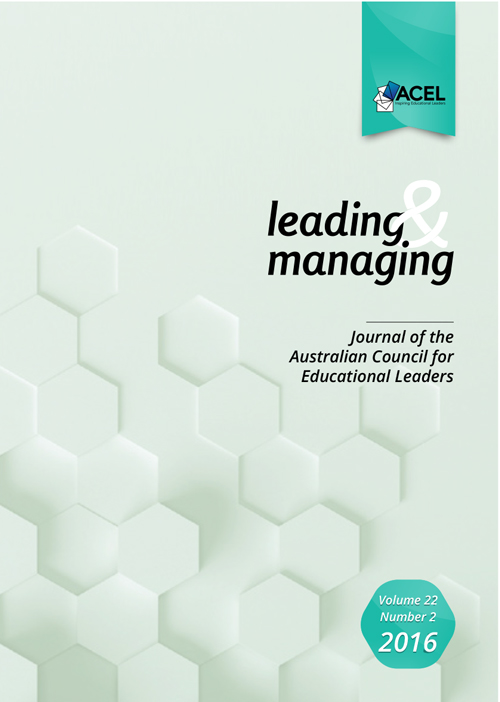
|
Improving teachers’ research engagement: Case studies of three School Research Coordinators. Leading & Managing: Journal of Australian Council for Education: 22(2), 18-33.
Abstract:
Schools today are increasingly expected to orchestrate improvement efforts from within, rather than simply adopting pre-packaged change programs. Over the decades, government in Shanghai has funded large numbers of school-initiated research projects. As a result, many schools have applied, conducted or completed research projects at different levels of scale and focus. Many schools have created a new mid-level leadership post – Research Coordinator – to help provide support and incentives that foster research and its take-up in practice. This article reports on interview data collected from research coordinators at three high schools in Shanghai. The study explored the role played by these mid-level leaders in improving teachers’ research engagement, and converting research knowledge into practice. The study also examined the factors that shaped the role perception and role enactment of these research coordinators.
|
Ho, D., & Lee, M.
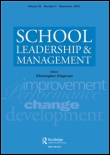
|
Capacity building for school development: Current problems and future challenges. School Leadership & Management, http://dx.doi.org/10.1080/13632434.2016.1247040.
Abstract:
This article offers a theoretical discussion on the current problems and future challenges of school capacity building in early childhood education (ECE), aiming to highlight some key areas for future research. In recent years, there has been a notable policy shift from monitoring quality through inspection to improving quality through school capacity building in early childhood institutions in the global discourse for quality. Reflecting this policy shift and its implications on school development, ECE in Hong Kong is used as an illustrative example to deliberate the issues of school capacity building in Chinese educational contexts. We identify three challenging contexts: (1) low professional qualification and minimal teacher education resulting in a deficit approach to processional development, (2) absence of school-based professional learning culture for empowering teachers as internal agents of change, and (3) hierarchical culture within a school and between university and school hindering the process of school capacity building. Corresponding to these challenges, we aim to propose two suggestions, including (1) empowering teachers in ECE through school-based professional learning community and (2) promoting authentic external support in the process of university–school collaboration. Finally, we further propose specific directions for future research on school capacity building in ECE in Hong Kong. In doing so, it will contribute to knowledge-based development in school capacity building in Chinese educational contexts.
|
Chen, J.,
& Cowie, B.
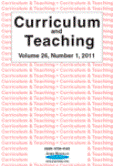
|
Use of digital videos in New Zealand science classrooms: Opportunities for teachers and students. Curriculum and Teaching, 31(2), 71-86.
Abstract:
This paper reports how New Zealand teachers used digital videos from an educational website in science classrooms and how teachers and students viewed the use of videos. The study involved lesson observations in nine different classrooms, student and teacher interviews, and teacher focus group discussions. Multiple qualitative data were analysed using inductive content analysis. Findings indicate three major affordances for pedagogies to support student science learning: Support for discussion and developing concepts, informing hands-on activities, and an additional source of knowledge in the classroom. Implications for science teachers’ use of digital videos have been proposed.
|
Alviar-Martin, T.,
& Baildon, M. C.
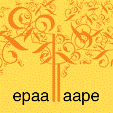
|
Context and curriculum in two global cities: A study of discourses of citizenship in Hong Kong and Singapore. Education Policy Analysis Archives, http://dx.doi.org/10.14507/epaa.24.2140.
Abstract:
This qualitative, comparative case study examined global civic education (GCE) in the Asian global cities of Hong Kong and Singapore. Guided by theories that position curriculum at the intersection of discourse, context, and personal meaning-making, we sought to describe the ways in which intentions for GCE reflect broader societal discourses of citizenship and how curricula allow students to tackle tensions surrounding national and global citizenship. We found that Singapore and Hong Kong have adopted depoliticized forms of citizenship as a means of inoculation against global ills. These types of citizenship are more nationalistic than global in nature; moral rather than political; and focused mainly on utilitarian goals to produce adaptable workers able to support national economic projects in the global economy. Although critical, transnational, and other emergent civic perspectives are apparent in both cities, the data yielded little evidence of curricular opportunities for students to become exposed to alternative discourses and reconcile discursive contradictions. The findings inform current literature by illuminating the nexus of local and global discursive practices, implicating the ability of curricula to accommodate both novel and established civic identities, and forwarding suggestions to bridge disconnections between theoretical and local curricular definitions of global citizenship. |
Szeto, E., & Cheng, A. Y. N.
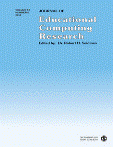
|
Pedagogies across subjects what are preservice teachers’ TPACK patterns of integrating technology in practice? Journal of Educational Computing Research, doi:10.1177/0735633116667357.
Abstract:
This case study examines preservice teachers’ integration of technology in teaching various subject domains. It aims to gain in-depth understandings of preservice teachers’ pedagogical patterns for teaching through the theoretical lens of technological pedagogical and content knowledge. Multiple data sources were collected in a teacher education institution in Hong Kong. The teachers’ pedagogical patterns vary depending on their instructional decisions affected by individual preferences, various subject cultures, and individual school settings. The patterns reflected various forms of technological pedagogical and content knowledge development in teaching different subjects. Implications for preparation of preservice teachers’ pedagogy, teacher preparation, and development are also discussed. |
Bryant, D. A., Walker A.,
& Lee, M.
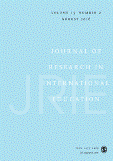
|
A review of the linkage between student participation in the International Baccalaureate Continuum and student learning attributes. Journal of Research in International Education, 15, 87-105
Abstract:
Given the rapid growth in the number of students completing the International Baccalaureate (IB) Diploma Programme and the potential for students to be educated entirely through IB programmes, it is important to understand associations between programme participation and cognitive and non-cognitive learning attributes. Through a mixed methods study, this research considers evidence derived from Diploma Programme examinations, a newly designed and validated student questionnaire, and complementary case studies to examine plausible explanations for associations between IB programmes and learning attributes. |
Cheng, A. Y. N.,
& Szeto, E.
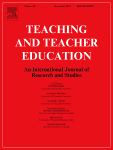
|
Teacher leadership development and principal facilitation: Novice teachers’ perspectives. Teaching and Teacher Education, 58, 140-148
Abstract:
This article explores novice teachers’ perspectives on their teacher leadership roles and their principal’s facilitation of their leadership development. A cohort of 20 novice teachers teaching in Hong Kong participated in this study. Data were collected through semi-structured interviews and documentary evidence during a two-year period. The results show that six novice teachers performed principal-delegated and teacher-initiated teacher leadership roles facilitated by principals’ practices. Interplay of the teacher’s and principal’s roles as an interface of developing teacher leadership is evidenced. This has important implications for the roles of teachers and principals in fostering teacher leadership in schools. Teacher educators are also informed for enhancement of initial teacher education. |
Hong, J. C.,
Hwang, M. Y.,
Szeto, E.,
Tai, K. H.,
& Tsai, C. R.
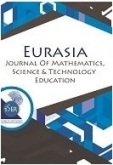
|
Positive affect relevant to epistemic curiosity to reflect continuance intention to join a hands-on making contest. Eurasia Journal of Mathematics, Science & Technology Education, 12(9), 2267-2279
Abstract:
Hands-on making (e.g., “Maker”) has become prevalent in current educational settings. To understand the role that students’ epistemic curiosity plays in hands-on making contests, this study explored its correlation to students’ positive affect and continuance intention to participate in a hands-on making contest called “PowerTech”. PowerTech requires students to produce miniatures in the morning and use the miniatures to take part in relay racing and tug-of-war competitions in the afternoon. Data from 514 individuals were collected and subjected to confirmatory factor analysis and structural equation modeling by AMOS 20. The results revealed the two types of epistemic curiosity (EC), interest (I-type) and informational deprivation type (D-type), played a mediating role in bonding participants’ positive affect and their continuance intention to join a hands-on making contest. The implication of this study suggests students’ epistemic curiosity can be aroused in the process of participating in competitive hands-on making contests such as PowerTech. |
Ko, J.,
Cheng, Y. C.,
& Lee, T.

|
The development of school autonomy and accountability in Hong Kong: Multiple changes in governance, work, curriculum, and learning. International Journal of Educational Management, 30(7), http://dx.doi.org/10.1108/IJEM-10-2015-0145
Abstract:
Purpose – To trace the development of school autonomy and accountability and related multiple changes and impacts in key areas of school education in Hong Kong since implementing school-based management from 1990s.
Design/methodology/approach – To explore the evolution and the uniqueness of autonomy and accountability in the Hong Kong school system, the paper begins with an historical account, followed by an evaluation of the effects of School-based Management (SBM) as shown in policy documents, local research, international reviews and illustrative findings from a case study. The local and international implications of SBM for research and practice are then discussed.
Findings – This paper shows the links between school autonomy and accountability by exploring the potential effects of both of these factors on educational management and student achievement, which are increasingly emphasised in educational policies. The investigation shows that the assumed links and effects are not always consistent or empirically supported. The positive effects that school autonomy has on school governance and management, teachers’ work, school-based curriculums and student learning are all significant when there is also strong leadership, comprehensive continuous professional development and a positive, collaborative school climate. These key elements work alongside school autonomy to facilitate positive change.
Research limitations/implications – School autonomy and accountability should be viewed as necessary, but not sufficient, conditions for school improvement and development. Further characterisation of the processes happening in schools is needed to explore the different realisations of school autonomy and accountability.
Originality/value – This investigation of school autonomy and accountability in Hong Kong provides the international audience with a deeper understanding of the dynamics involved in the development of SBM.
|
Ho, D.,
Lee, M.,
& Teng, Y.

|
Size matters: The link between staff size and perceived organizational support in early childhood education. International Journal of Educational Management, 30(6), 1104-1122
Abstract:
Purpose – This paper examines the relationship between staff size and perceived organizational support (POS) in early childhood education organizations.
Design/methodology/approach – A territory-wide questionnaire survey was designed to investigate the perceptions of preschool teachers in Hong Kong on four dimensions of organizational support, namely teacher participation in decision-making, school management support, school performance in organizational support, and organizational negativity in organizational support. In total, 2,066 teachers from 189 schools were sampled with stratified random sampling. Confirmatory factor analysis and latent mean analysis were employed.
Findings – There was a significant relationship between staff size and POS. Specifically, teachers working at small schools in terms of staff size reported significantly higher POS than their counterparts in medium and large schools in aspects including teacher participation in decision-making, school management support, and school performance in POS. Conversely, both medium and large schools had higher scores on organizational negativity.
Research limitations/implications – There may exist other factors (e.g., principal leadership), which are not investigated in this study, that influence POS. Future studies are needed to capture a fuller structural relationship among an array of factors that influence POS.
Originality/value – Research on staff size and POS has been conducted separately, without one element informing the other. The findings of the present study will stimulate more research on POS and staff size. The study will stimulate thinking about whether larger preschools are more efficient than smaller preschools in terms of scale of economies in a marker-driven, ECE context. Building upon the foundation laid by the study, future studies may explore the interaction between staff size and POS on intended student outcomes in ECE.
|
Cheng, Y. C.,
Ko, J.,
& Lee, T.

|
School autonomy, leadership and learning: A reconceptualisation. International Journal of Educational Management, 30(2), 177-196
Abstract:
Purpose – The purpose of this paper is to develop a framework for reconceptualising research on school autonomy to redress the limitations of traditional research, strengthen the conceptual links between school autonomy and learning outcomes and offer a range of new strategies for studying the interplay of school autonomy, leadership and learning.
Design/methodology/approach – Based on a review of international studies and the findings of the Programme for International Student Assessment (PISA) and the Teaching and Learning International Study (TALIS), the conceptual limitations of and gaps in traditional research on school autonomy in relation to leadership and learning are discussed, and their implications for the development of a new framework are outlined.
Findings – The conceptual limitations of traditional research on school autonomy are as follows: internal school autonomy is insufficiently differentiated; too little attention is paid to cultural autonomy and internal structural autonomy at individual and group levels; autonomy is measured only as perceived by principals, with no attention to the perspectives of other key stakeholders; and conceptual links between school autonomy and learning outcomes are missing, leading to inconsistent findings on the effects of school autonomy on student learning. To redress these limitations, a new framework for research is developed. School autonomy is reconceptualised as a combination of functional autonomy, structural autonomy and cultural autonomy. Leadership is also reconceptualised by categorising three types of leadership activity: leadership for functional initiatives, leadership for structural initiatives and leadership for cultural initiatives. This categorisation may help to strengthen conceptions of the relevance of leadership to autonomy and performance in future research.
Research limitations/implications – A typology of research strategies is developed to broaden the possibilities for implementing the reconceptualisation framework. A single-component strategy, a two-component strategy, an interaction strategy and a holistic case-study strategy are presented. Depending on the research purposes and the available resources, one or a combination of these strategies can be used to conceptualise the study of school autonomy, leadership and performance.
Originality/value – The new ideas and perspectives associated with the reconceptualisation framework will contribute to future research in this area on an international scale. Future PISA, TALIS and similar studies will also benefit from this reconceptualisation.
|
Choi, T. H.
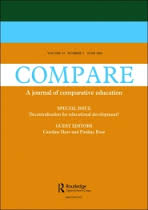
|
Review of the book Transforming education: Global perspectives experiences and implications, by R. A. DeVillar, B. Jiang, and J. Cummins. Compare: A Journal of Comparative and International Education, 46(3), 503-507.
|
Ho, D.,
Lee, M.,
& Teng, Y.

|
Exploring the relationship between school-level teacher qualifications and teachers' perceptions of school-based professional learning community practices. Teaching and Teacher Education, 54, 32-43.
Abstract:
This study explores the relationship between school-level teacher qualifications and school-based professional learning community (PLC) practices in Early Childhood Education in Hong Kong. A territory-wide survey examined how preschool teachers perceived shared responsibility, reflective dialogues, deprivatized practices and organizational learning. The findings suggest a significant relationship between school-level teacher qualifications and teachers' perceptions of school-based PLC practices. As the percentage of bachelor degree holders in preschools increases, teachers are more positive about PLC practices in their perceptions. This study establishes a platform for future studies focusing on structural relationships between teacher qualifications and school-based PLC practices.
|
Qian H. Y.,
Walker A.,
& Yang, X. W.
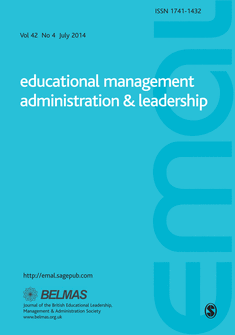
|
Building and leading a learning culture among teachers: A case study of a Shanghai primary school. Educational Management, Administration & Leadership. doi: 10.1177/1741143215623785
Abstract:
A positive teacher learning culture is important to effect meaningful changes in schools. Literature has established that successful school leaders can build and nurture learning cultures among teachers. However, less is known about how school leaders can shape the culture and make learning conditions happen at the schools in the Chinese education context. This paper reports an in-depth qualitative case study of a primary school in Shanghai. Using data collected from the principal, vice principal, mid-level leaders and teachers, the study attempts to answer these two questions: how do the school leaders build and nurture a positive teacher learning culture, and how does this culture affect teachers’ working lives?
|
Chen J.

|
Understanding teacher emotions: The development of a teacher emotion inventory. Teaching and Teacher Education, 55, 68-77.
Abstract:
This study investigates the emotions experienced by primary teachers in Hong Kong and Mainland China schools and develops a Teacher Emotion Inventory (TEI). Through surveying 254 teachers in a pilot study and 1830 teachers in the main study, a 5-factor TEI (i.e., Joy, Love, Sadness, Anger, and Fear) is identified using exploratory and confirmatory factor analysis. This model portrays primary teachers enjoying positive interactions with students and colleagues, recognition from school, family and public, but experiencing negative emotions in relation to unfair treatment, competition among colleagues, imbalance of work lives, and pressure from society, policy, and educational change.
|
Hong, J. C.,
Hwang, M. Y.,
Szeto, E.,
Tsai, C. R., Kuo, Y. C., & Hsu, W. Y.
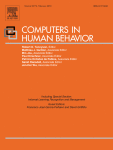
|
Internet cognitive failure relevant to self-efficacy, learning interest, and satisfaction with social media learning. Computers in Human Behavior, 55, 214-222.
Abstract:
Social media has been postulated as a convenient online resource tool for learning. To understand the usefulness of social media, the present study focused on “Guitar Class of Uncle Ma”, one of YouTube's most popular guitar learning channels in Taiwan, as a self-directed learning tool. Drawing upon a cognitive-affective theory of learning with media (CATLM), learners have the ability to control the pace of learning through YouTube by repeating playback, rewinding or fast forwarding the video. This study used expectation confirmation theory and structural equation modeling to explore the relationship between affective and cognitive factors in learning with social media. Using convenience sampling, data from 117 users were collected and the results showed Internet cognitive failure (ICF) was negatively correlated to self-efficacy and learning interest in using “Guitar Class of Uncle Ma” for learning guitar skills. However, self-efficacy and learning interest was positively correlated to learning satisfaction. The results suggest that “Guitar Class of Uncle Ma” is a beneficial self-directed learning tool for learners with low levels of Internet cognitive failure and high levels of self-efficacy and learning interest when learning how to play guitar using YouTube. |
Szeto, E.,
& Cheng, A. Y. N.
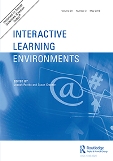
|
Towards a framework of interactions in a blended synchronous learning environment: What effects are there on students’ social presence experience? Interactive Learning Environments, 24(3), 487-503.
Abstract:
A synchronous blend of online learning and “face-to-face” teaching is becoming a feasible instructional approach in higher education with the advent of technology. Although this learning mode is not new in higher education, little research has been done to contextualise social presence experiences in which effects of interactions were explored for enhancing learning. A qualitative approach was adopted using the case study method to examine the instructor and students’ pedagogic interactions in the social presence of a blended synchronous learning environment. This paper reports an exploration of the blended learning with an online group of students at a remote site attending a computer-aided engineering drawing course synchronously with a face-to-face group taught by an instructor in a laboratory. The process of interaction was visually and verbally mediated by videoconference as if in an online face-to-face learning community. The findings show that the online and face-to-face groups had different social presence experiences in which interaction emerged. Emotional adaptation and practice is needed for the students and the instructor in such a complex environment. Based on the interaction patterns, a framework of interactions in the blended synchronous learning environment is conceptualised to inform course development and instructional design. Implications for further study are also discussed. |
Bryant, D. A.

|
Revisiting native speaking teachers of English in Hong Kong: An interpretivist policy study of change over time. International Journal of Comparative Education and Development.
Abstract:
Purpose – In 1997, Joseph Boyle critiqued the Hong Kong Government’s policy of recruiting native-speaking teachers (NSTs) of English into secondary schools. Boyle examined NSTs from a post-colonial and socio-linguistic stance. He concluded that the scheme was “largely ineffective” and that efforts to expand the scheme would likely fail due to the government’s implicit lack of trust in the capacities of non-native-speaking teachers’ (NNSTs) of English. However, almost two decades later the scheme has expanded across the primary and secondary sectors. The purpose of this paper is to explore how changing educational contexts and reform efforts have influenced conceptions of NSTs as articulated in Hong Kong policy.
Design/methodology/approach – The research is approached retrospectively through an interpretivist paradigm, analysing policy documents, implementation materials, evaluation reports, and interview transcripts. Over 41 scheme stakeholders participated in the interviews, inclusive of policy makers, government officials, academics, teacher educators, principals and teachers, who were active over different phases of the scheme.
Findings – The intended role and perceived competencies of the NSTs have been impacted by imported education reforms leading to new rationales for maintaining and expanding NST deployment. These shifts, however, lead to new tensions among idealised images of NSTs, their capacities, and the aims of policy makers and scheme implementers. Originality/value – The value of this paper lies in its reconsideration of the role of NSTs in light of educational reform efforts influenced by global change. This perspective varies from conventional critiques that focus on NSTs’ and NNSTs’ differing capacities as English language teachers by considering the impact of historic developments on later policies, and the tendency of policy makers to legitimise reform by importing international innovations. Second, it demonstrates how idealised images of NSTs simultaneously justify policies and pose challenges to effective implementation.
|
Li, L.,
Hallinger, P.,
& Ko, J.

|
Principal leadership and school capacity on teacher professional learning in Hong Kong. International Journal of Educational Management.
Abstract:
Purpose – Over the past decade, studies of school leadership effects have increasingly aimed at identifying and validating the paths through which principal leadership impacts key teaching and learning processes in schools. A recent meta-analysis by Robinson and colleagues identified principal practices that shape teacher professional development experiences in schools as the highest impact path used by instructional leaders. The purpose of this paper is to examine relationships between principal leadership, dimensions of school capacity, and teacher professional learning in 32 Hong Kong primary schools.
Design/methodology/approach – The study employed a cross-sectional research design and quantitative methods to analyze teacher perceptions of principal leadership and key school conditions. The research employed hierarchical linear regression analysis to explore survey data collected from a sample of 970 teachers. The surveys covered a range of principal leadership and school capacity dimensions, as well as a measure of teacher professional learning.
Findings – Results indicated that multiple dimensions of principal leadership made significant contributions to both school capacity and teacher professional learning. The presence of cooperation, trust, communication, support for students, and alignment, coherence, and structure in schools also affected teacher professional learning.
Research limitations/implications – These findings contribute to the global discourse on leadership for learning. The study addresses the need established by multiple scholars (e.g. Leithwood, Hallinger, Heck, Robinson, Witziers) for research that further illuminates “paths” and “intermediate targets” through which leadership impacts teaching and learning. The findings elaborate on the means by which leadership can enhance school capacities that directly impact teacher classroom practice and student learning. Consistent with other scholarly research (e.g. Bryk and Schneider, Louis and colleagues, Sahphier and King) the findings also point toward the importance of establishing selected workplace conditions (e.g. trust, cooperation, communication) as a foundation for fostering teacher professional learning.
Practical implications – The study reinforces the finding from other studies that it is productive for principals to foster an environment aimed at enhancing teacher professionalism. The study also highlights the potentially dysfunctional consequences that can arise from competing system-level initiatives aimed at increasing monitoring and teacher accountability and fostering teacher professionalism.
Originality/value – The study contributes to a small but growing body of leadership effects research conducted in non-Western societies. As such the study offers insights with relevance for understanding leadership processes in other Asian and non-Western cultures.
|
Ho, D., Lee, M.,
& Teng, Y.

|
Exploring the relationship between school-level teacher qualifications and teachers' perceptions of school-based professional learning community practices. Teaching and Teacher Education.
Abstract:
This study explores the relationship between school-level teacher qualifications and school-based professional learning community (PLC) practices in Early Childhood Education in Hong Kong. A territory-wide survey examined how preschool teachers perceived shared responsibility, reflective dialogues, deprivatized practices and organizational learning. The findings suggest a significant relationship between school-level teacher qualifications and teachers' perceptions of school-based PLC practices. As the percentage of bachelor degree holders in preschools increases, teachers are more positive about PLC practices in their perceptions. This study establishes a platform for future studies focusing on structural relationships between teacher qualifications and school-based PLC practices.
Keywords: School-based professional learning community (PLC); Teacher qualifications; Early childhood education; Hong Kong
|
Li, L.,
& Hallinger, P.
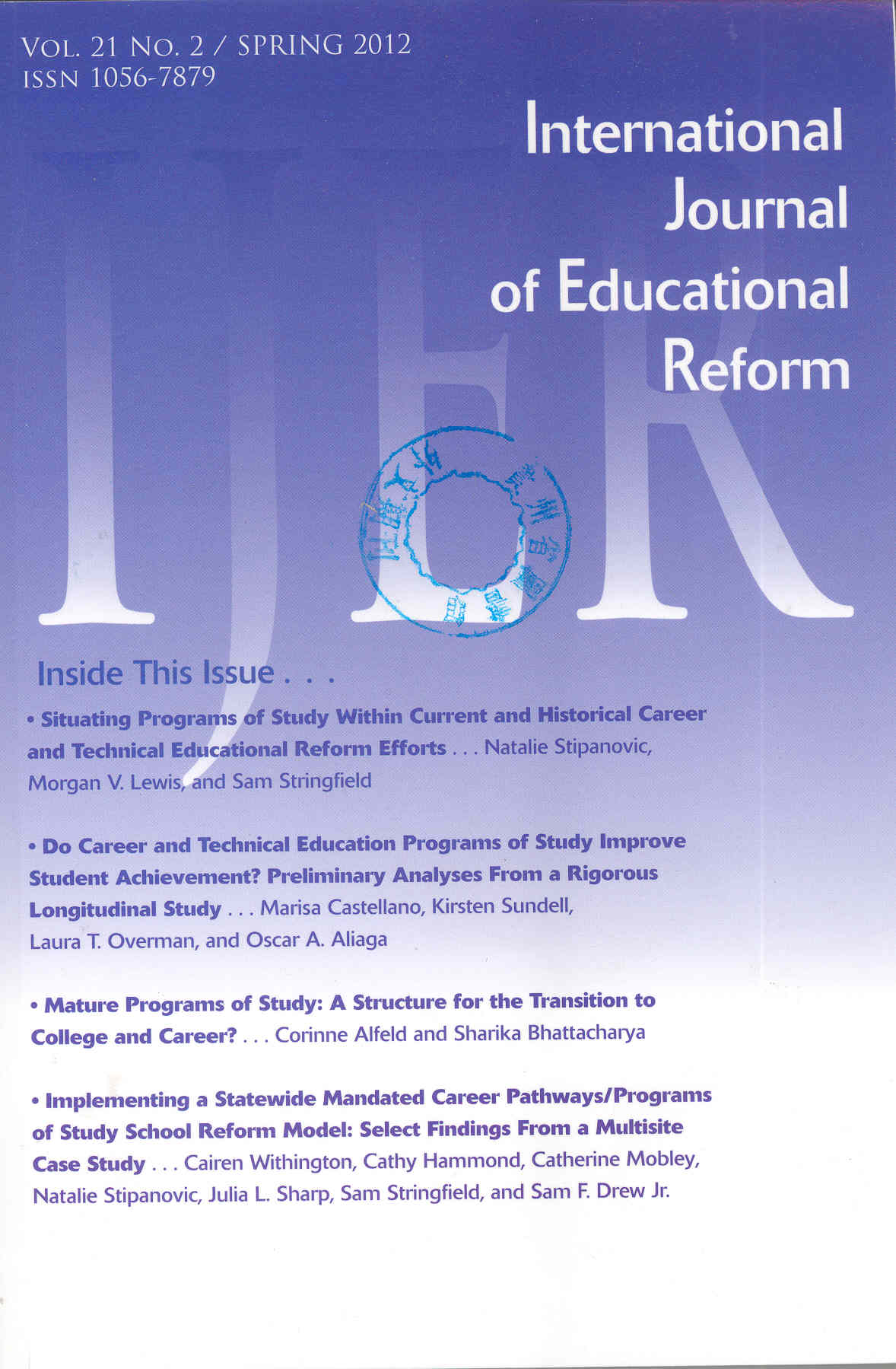 |
Communication as a mediator between principal leadership and teacher professional learning in Hong Kong primary schools. International Journal of Educational Reform, 25(2), 192-214.
Abstract: This study attempted to identify communication as a human relational “path” through which principal leadership influenced teacher professional learning. The data was collected from a sample of 970 teachers from 32 Hong Kong primary schools. Online survey was administered, with two questionnaires to measure teacher perceptions of principal leadership and school capacity. Baron and Kenny’s (1986) four-step causal process for mediation analysis was employed and integrated with bootstrapping method. Further significance of the mediating effects of communication was tested, and the sizes for both the direct and indirect effects in the relationship were made explicit. The findings affirmed the role of communication as a mediator in the relationship between principal leadership and teacher learning. |
Li, L., Hallinger, P., & Walker, A.

|
Exploring the mediating effects of trust on the relationship between principal leadership and teacher professional learning in Hong Kong primary schools. Educational Management Administration and Leadership, 44(1), 20-42.
Abstract: This study attempted to identify effects of trust between principal leadership and teacher professional learning in Hong Kong primary schools. To verify the potential mediating effects of trust as a component of school capacity, survey data with a sample of 970 teachers from 32 local primary schools was used. Two questionnaires were combined to investigate principal leadership and school capacity in the schools. Baron and Kenny’s four-step causal process for mediation analysis was employed to have a preliminary inquiry. To compensate weaknesses of the orthodox regression based approach, significance of the mediating effects of trust were tested using the Sobel’s test and bootstrapping method. Next, the seven core sets of principal leadership practices were used as multiple predictors, and mediating effects of trust between them and teacher professional learning were also examined. The findings affirmed the role of faculty trust as a mediator between principal leadership and teacher professional learning in Hong Kong primary schools.
Keywords: Leadership, management, teacher learning, school capacity
|